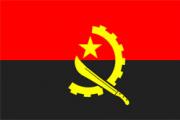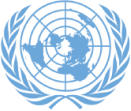On behalf of the Community of Portuguese-speaking countries (CPLP)
At the Security Council on the situation in Guinea-Bissau
Mr. President,
I have the honor to address this Council on behalf of the Community of Portuguese Language Countries (CPLP) and its Member States, namely Angola, Brazil, Cape Verde, Guinea-Bissau, Mozambique, Portugal, Sao Tome and Principe, and East Timor, while fully endorsing the statements made by the representatives of Guinea-Bissau and Portugal in this important and timely debate on the situation in Guinea-Bissau.
Allow me to thank you, Madam President, for scheduling this emergency meeting, as well as to thank all Members of the Security Council for your willingness to deepen the debate on the serious situation that afflicts a member of the Community—the Republic of Guinea Bissau, a country bound to the CPLP by linguistic ties and with which we share a historical and cultural legacy, supported by a multifaceted cooperation between our Countries.
The reasons that brought us to the Security Council to participate in this debate are extremely serious for Guinea-Bissau and its people, as well as for the African continent, and for the international community as a whole. In effect, the military coup of the past 12th of April has interrupted the most virtuous period in the country's recent history of relative political stability, good governance and significant economic growth, which augured a promising a future for the country, and the pursuit of which was being encouraged and rewarded by the international community, as evidenced by the relief of the country’s debt and by the positive evaluations made by international organizations.
The military coup d’état, which has already been categorically condemned by this Council, by the Secretary-General of the UN, the Peacebuilding Commission, the CPLP, ECOWAS, the African Union, the European Union, the International Organization of Francophonie and by other national and international organizations, is of exceptional seriousness because it took place in the middle of the electoral process, which reflects a total disregard for the democratic will and sovereignty of the people of Guinea-Bissau.
Thus, the military coup has violated all the principles of democratic life and constitutes the most basic violation of Article 25 of the African Union Charter on elections and good governance, and its cast its authors and accomplices under political condemnation, sanctions and prosecutions.
Mr. President,
The history of Guinea-Bissau has been very tragic, marked by several coups d’états in recent years in which died a President, a presidential candidate, three Chiefs of Staff and several other military and civilian authorities.
Given this situation, it was with extreme concern that the CPLP Member States, meeting at the Summit of Heads of State in Luanda on July 22, 2010, and after extensive consultations with the partners from ECOWAS, agreed on a roadmap for the implementation of the defense and security sector reform program.
The CPLP’s solidarity with Guinea-Bissau has been ongoing and active: Portugal and Brazil, through various development programs, have supported the country in maintaining social services and economic recovery.
It was also in the context of this assistance that in 2010, the Governments of Angola and Guinea-Bissau signed a bilateral cooperation agreement which included a program of financial aid to Guinea-Bissau’s budget and a military-technical cooperation agreement to support the country’s reform of its defense and security sector.
Mr. President,
Angola, like all members of the CPLP and the international community, wants to see Guinea-Bissau consolidate peace, stability and development. That is why we joined the combined efforts of all, because we think that only through concerted actions and ideas can we help the brotherly people and country of Guinea-Bissau to overcome the current crisis.
In this connection, Angola, in its capacity as President of the CPLP, has been holding open consultations with various international partners, such as the United Nations, the African Union, and ECOWAS with a view to finding a lasting solution for Guinea-Bissau.
Guinea-Bissau has deep-rooted problems affecting a large part of its political and military class. The increase in drug trafficking in the country can affect not only the neighboring nations but also the entire region, with consequences for regional stability and security.
The permanent instability that Guinea-Bissau faces, marked by successive military uprisings which affect not only the institutions but
the entire political class in the country is the result of:
-- Impunity as well as an absence of functioning institutions, particularly the judicial system, due to the intervention of military authorities in public life, which makes the country hostage to military power.
-- The increase in drug trafficking, with the risk of turning the country into a platform for international drug trafficking.
Thus, Guinea-Bissau needs adequate therapy with the aid of the Council and the Peacebuilding Commission, the African Union, ECOWAS, the CPLP and other actors in order to find a lasting solution for the country.
Therefore, we call on the Security Council to consider adopting appropriate measures with a view to restoring constitutional order, ensuring the unconditional release of arrested leaders, creating a peacekeeping force for Guinea-Bissau, concluding the electoral process, as well as providing a system of penalties for breaches of the measures adopted.
The challenge to the international community is serious enough that if we fail to find appropriate solutions, with the efforts of all, a people that has already suffered tremendously over the past 30 years may be further sacrificed.
If Guinea-Bissau becomes a failed State, we will all be responsible. Therefore, Guinea-Bissau requires a strong therapy coming from the United Nations, in particular from this Council and the Peacebuilding Commission, the CPLP, ECOWAS, the Peace and Security Council of the African Union, the European Union, and the Organization Internationale de la Francophonie.
In this conformity, the CPLP reaffirms the decisions contained in its Resolution resulting from the Eighth Meeting of its Council of Ministers, held in Lisbon on April 14, 2012.
Consequently, this coup d'etat should continue to be strongly condemned, as this Council did in its statement of April 13, 2012, which called for restoration of the constitutional legality.
Thank you.


